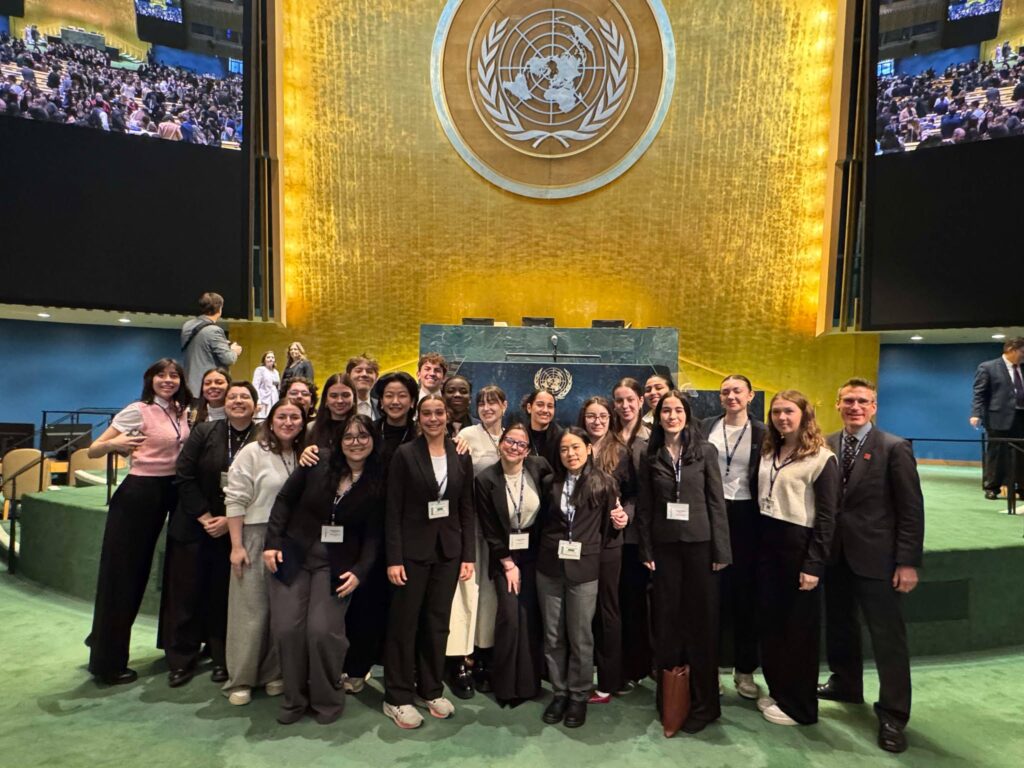300. A1 - Pre-University
Social Science
The Social Science program allows you to study the many facets of humans, including our minds and bodies, as well as our interactions with each other and the world around us, both today and in the past.
Admission
- Fall
Duration
- 2 years
Interests
- Social Science
- Business & Commerce
- Culture
- Health, Wellness & the Body
- Crime, Law & Justice
Requirements
- College general admission requirements
- For the Commerce or Mathematics profiles: Math TS 5 or SN 5
What You Can Expect from the Program
The Social Science program provides an in-depth exploration of humanity, encompassing the workings of the mind and body as well as the complex relationships between individuals, societies, and their environments. Designed to provide a well-rounded education in the social sciences discipline, this program covers a range of fields including economics, political science, history, psychology, and sociology.
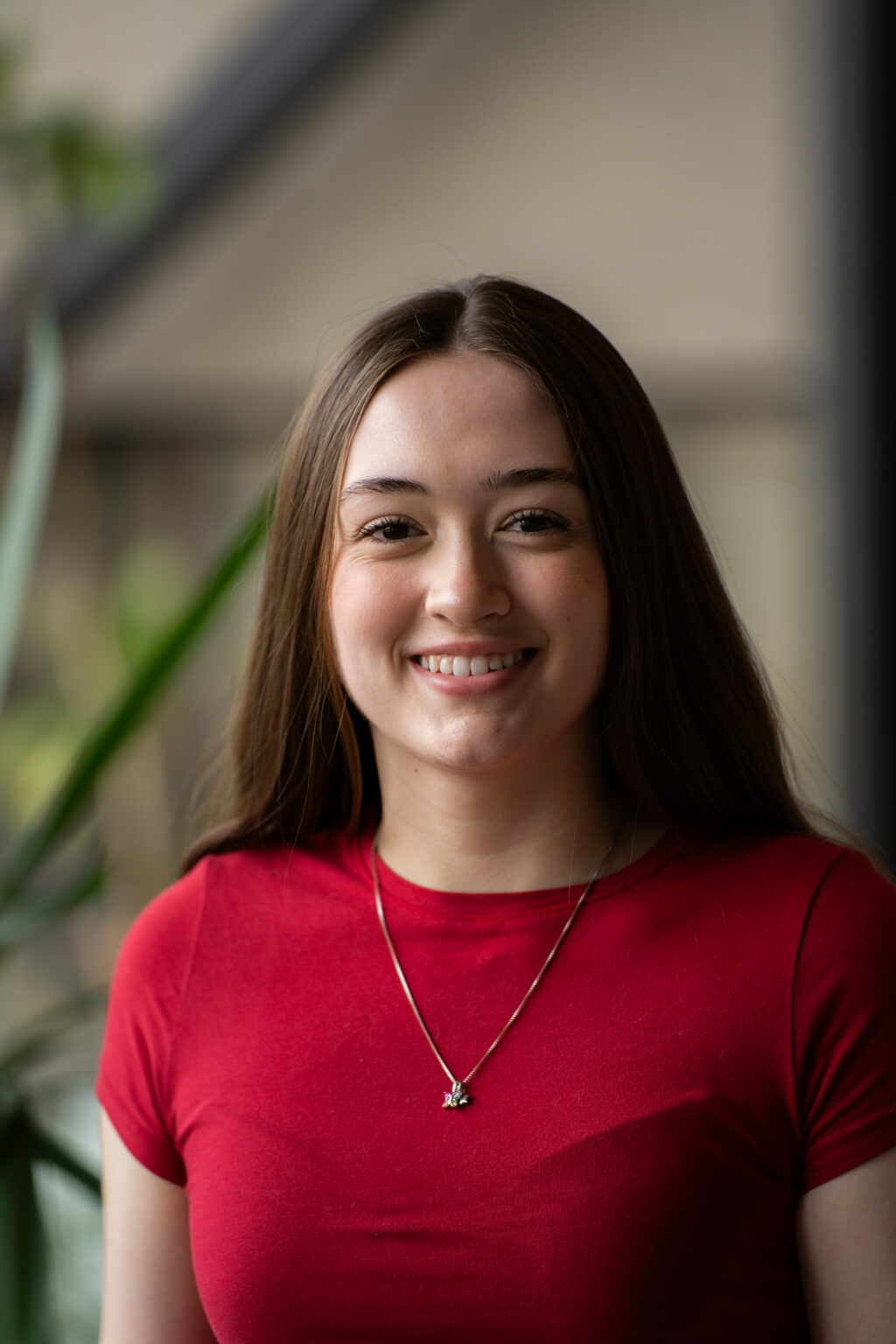
Bridging Minds, Societies, and Histories
Hone Your Research Skills
All students in Social Science take courses in Successful Academic Methods, Quantitative Analysis, and Qualitative Methods. Students also have the opportunity to join teacher-led research projects.
Enrich Your Studies With a Trip Abroad
World profile students take a course that includes a trip to a foreign destination. In 2025, the group went to Mexico City and Oaxaca.
Get Advanced Standing
We have agreements with Université Laval for students who wish to pursue their BAC in sociology or political science.
6
Profiles to choose from
2
Profiles with hands-on experience courses in the final semester
15+
Enrichment courses to pick from
Find the Perfect Profile for You
If you are eligible to attend English school under the Charter of the French language and are in possession of a certificate granted by the Ministry of Education, you are considered a Certificate Holder. Your course sequence will then be determined by your results in the high school French course (1-2 or 3-4). For more information about Certificates, please consult the Ministry of Education’s website. If you are not eligible, you must follow the course sequence for Non Certificate Holders that prepares students for l’Épreuve uniforme de français (EUF – French ministerial language evaluation).

300.AD – Discovery profile
This profile offers the widest variety of Social Science courses and the greatest flexibility. It is intended for students who wish to discover the social sciences and explore their options.
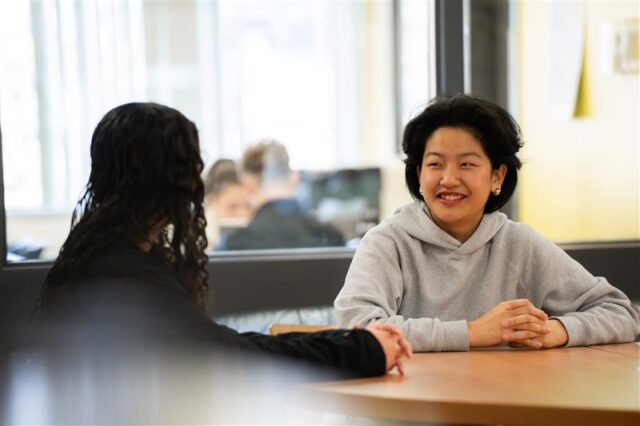
300.AP – Psychology, Society and Health profile
This profile places an emphasis on studies oriented towards the helping professions, such as psychology, social work, counselling, and criminology. It includes courses in human biology and advanced quantitative methods, required for admission to psychology programs at Quebec universities. Other courses specific to this profile are Introduction to Sociology, Social Science and Health and a psycho-social second-year course.
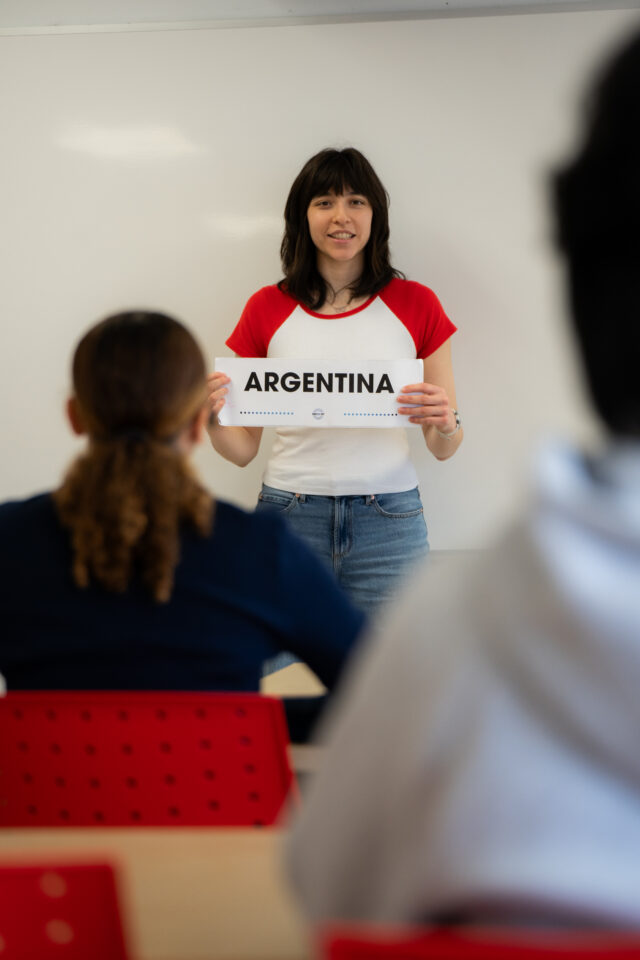
300.AW – World profile
This profile allows students to explore world issues. During their studies they are exposed to various social and cultural realities to prepare them for travel to a foreign destination as a final semester course. Other courses specific to this profile are Introduction to Geography and Introduction to Politics, as well as Living in an Intercultural World: Tools for Fruitful Intercultural Interactions, a language complementary course, and a second-year course with an international perspective.

300.AJ – Social Justice & Leadership profile
This profile focuses on issues of social justice, community engagement, and leadership. An applied course in their final semester will get students involved in the community. Other courses specific to this profile are Introduction to Sociology and Introduction to Politics and a second-year course exploring social justice themes.

400.AM – Discovery with Mathematics profile
Students who wish to explore a variety of social science disciplines while pursuing an interest in mathematics will like the Discovery with Mathematics profile. This profile also increases the number of university programs made available. Courses specific to this profile are Differential Calculus, Integral Calculus, and Linear Algebra and Vector Geometry.

400.AC – Commerce profile
This profile is aimed at students interested in the business world, commerce and economics, and ensures the obtention of the pre-requisites for university studies in business administration, such Microeconomics and the three mathematics courses. It also includes Introduction to Business. Students who wish to study many non-business fields before beginning university should consider this profile in the Social Science program. Students who would prefer to focus on business studies at CEGEP should consider our three-year P.W. Sims Business Program.
Courses for the Discovery profile
Your specific course sequence is determined by your Certificate status.
Course sequence legend :
(Theory – Laboratory – Personal Work)
- Theory (T): Hours in class per week
- Laboratory (L): Hours of laboratory or internship per week
- Personal Work (P): Estimated personal work hours outside of class
- Total contact hours per week: Hours in class (Theory + Laboratory) for the semester
603-101-MQ
2-2-4
Introduction to College English
109-102-MQ
0-2-1
Physical Activity & Effectiveness
345-101-MQ
3-1-3
Knowledge
300-113-LW
1-2-2
Successful Academic Methods
330-114-LW
2-2-2
Introduction to Global History
602-UF0-MQ
2-1-3
Oeuvres narratives et écriture
1st Level
2-1-3
First level option
Total 23h / week
603-103-MQ
2-2-3
Literary Themes in Poetry
109-101-MQ
1-1-1
Physical Activity and Health
300-214-LW
2-2-2
Qualitative Methods in the Social Sciences
383-113-LW
3-0-3
Introduction to Macroeconomics
350-123-LW
2-1-3
Introduction à la psychologie
602-UF1-MQ
2-1-3
Poésie, théâtre et écriture
1st Level
2-1-3
First level option
1st Level
2-1-3
First level option
Total 25h / week
603-102-MQ
2-2-3
Literary Genres
345-112-MQ
3-0-3
Conceptions du monde
360-214-LW
2-2-2
Quantitative Analysis in the Social Sciences
602-UF2-MQ
2-1-3
Comparaison d’oeuvres littéraires
Enrichment
2-1-3
Enrichment course
Enrichment
2-1-3
Enrichment course
Enrichment
2-1-3
Enrichment course
Total 23h / week
603-BNR-LW
2-2-2
Long Fiction
345-BNR-LW
3-0-3
Ethics
109-103-MQ
1-1-1
Physical Activity & Autonomy
300-313-LW
1-2-3
Integrative Activity (Social)
Enrichment
2-1-3
Enrichment course
Enrichment
2-1-3
Enrichment course
Enrichment
2-1-3
Enrichment course
Complementary
2-1-3
Complementary course
Total 24h / week
603-101-MQ
2-2-4
Introduction to College English
109-102-MQ
0-2-1
Physical Activity & Effectiveness
345-101-MQ
3-1-3
Knowledge
300-113-LW
1-2-2
Successful Academic Methods
330-114-LW
2-2-2
Introduction to Global History
602-10X-MQ
2-1-3
Français Bloc A
1st Level
2-1-3
First level option
Total 23h / week
603-103-MQ
2-2-3
Literary Themes in Poetry
109-101-MQ
1-1-1
Physical Activity and Health
300-214-LW
2-2-2
Qualitative Methods in the Social Sciences
383-113-LW
3-0-3
Introduction to Macroeconomics
350-113-LW
2-1-3
Introduction to Psychology
602-BNY-MQ
2-1-3
Français Bloc B
1st Level
2-1-3
First level option
1st Level
2-1-3
First level option
Total 25h / week
603-102-MQ
2-2-3
Literary Genres
345-102-MQ
3-0-3
World Views
360-214-LW
2-2-2
Quantitative Analysis in the Social Sciences
602-BN1-LW
2-1-3
Culture québécoise et communication
109-103-MQ
1-1-1
Physical Activity & Autonomy
Enrichment
2-1-3
Enrichment course
Enrichment
2-1-3
Enrichment course
Enrichment
2-1-3
Enrichment course
Total 25h / week
603-BNR-LW
2-2-2
Long Fiction
345-BNR-LW
3-0-3
Ethics
300-313-LW
1-2-3
Integrative Activity (Social)
602-BN2-LW
2-1-3
Le français au travail
602-BN3-LW
2-1-3
Projet expérientiel en français
Enrichment
2-1-3
Enrichment course
Enrichment
2-1-3
Enrichment course
Enrichment
2-1-3
Enrichment course
Total 25h / week
603-101-MQ
2-2-4
Introduction to College English
109-102-MQ
0-2-1
Physical Activity & Effectiveness
345-101-MQ
3-1-3
Knowledge
300-113-LW
1-2-2
Successful Academic Methods
330-114-LW
2-2-2
Introduction to Global History
602-10X-MQ
2-1-3
Français Bloc A
1st Level
2-1-3
First level option
Total 23h / week
603-103-MQ
2-2-3
Literary Themes in Poetry
109-101-MQ
1-1-1
Physical Activity and Health
300-214-LW
2-2-2
Qualitative Methods in the Social Sciences
383-113-LW
3-0-3
Introduction to Macroeconomics
350-123-LW
2-1-3
Introduction à la psychologie
602-BNY-MQ
2-1-3
Français Bloc B
1st Level
2-1-3
First level option
1st Level
2-1-3
First level option
Total 25h / week
603-102-MQ
2-2-3
Literary Genres
345-112-MQ
3-0-3
Conceptions du monde
360-214-LW
2-2-2
Quantitative Analysis in the Social Sciences
Enrichment
2-1-3
Enrichment course
Enrichment
2-1-3
Enrichment course
Enrichment
2-1-3
Enrichment course
Complementary
2-1-3
Complementary course
Total 23h / week
603-BNR-LW
2-2-2
Long Fiction
345-BNR-LW
3-0-3
Ethics
109-103-MQ
1-1-1
Physical Activity & Autonomy
300-313-LW
1-2-3
Integrative Activity (Social)
Enrichment
2-1-3
Enrichment course
Enrichment
2-1-3
Enrichment course
Enrichment
2-1-3
Enrichment course
Complémentaire
2-1-3
Cours complémentaire en français
Total 24h / week
Courses for the Psychology & Health profile
Your specific course sequence is determined by your Certificate status.
603-101-MQ
2-2-4
Introduction to College English
109-102-MQ
0-2-1
Physical Activity & Effectiveness
345-101-MQ
3-1-3
Knowledge
300-113-LW
1-2-2
Successful Academic Methods
350-123-LW
2-1-3
Introduction à la psychologie
602-UF0-MQ
2-1-3
Oeuvres narratives et écriture
1st Level
2-1-3
First level option
Total 22h / week
603-103-MQ
2-2-3
Literary Themes in Poetry
109-101-MQ
1-1-1
Physical Activity and Health
360-214-LW
2-2-2
Quantitative Analysis in the Social Sciences
330-114-LW
2-2-2
Introduction to Global History
383-113-LW
3-0-3
Introduction to Macroeconomics
383-114-LW
2-1-3
Introduction to Sociology
602-UF1-MQ
2-1-3
Poésie, théâtre et écriture
1st Level
2-1-3
First level option
Total 26h / week
603-102-MQ
2-2-3
Literary Genres
345-112-MQ
3-0-3
Conceptions du monde
300-214-LW
2-2-2
Qualitative Methods in the Social Sciences
Psychology or Sociology option
2-1-3
Psychology or Sociology second level course
Health/Science course (pick 1)
2-1-3
Social Sciences and Health or Probability and Statistics in the Social Sciences or Human Body
Enrichment
2-1-3
Enrichment course
Total 23h / week
603-BNR-LW
2-2-2
Long Fiction
345-BNR-LW
3-0-3
Ethics
109-103-MQ
1-1-1
Physical Activity & Autonomy
300-313-LW
1-2-3
Integrative Activity (Social)
Health/Science course (pick 1)
2-1-3
Social Sciences and Health or Probability and Statistics in the Social Sciences or Human Body
Enrichment
2-1-3
Enrichment course
Complementary
2-1-3
Complementary course
Total 24h / week
603-101-MQ
2-2-4
Introduction to College English
109-102-MQ
0-2-1
Physical Activity & Effectiveness
345-101-MQ
3-1-3
Knowledge
300-113-LW
1-2-2
Successful Academic Methods
350-113-LW
2-1-3
Introduction to Psychology
602-10X-MQ
2-1-3
Français Bloc A
1st Level
2-1-3
First level option
Total 22h / week
603-103-MQ
2-2-3
Literary Themes in Poetry
109-101-MQ
1-1-1
Physical Activity and Health
300-214-LW
2-2-2
Qualitative Methods in the Social Sciences
330-114-LW
2-2-2
Introduction to Global History
383-113-LW
3-0-3
Introduction to Macroeconomics
383-114-LW
2-1-3
Introduction to Sociology
602-BNY-MQ
2-1-3
Français Bloc B
1st Level
2-1-3
First level option
Total 26h / week
603-102-MQ
2-2-3
Literary Genres
345-102-MQ
3-0-3
World Views
360-214-LW
2-2-2
Quantitative Analysis in the Social Sciences
109-103-MQ
1-1-1
Physical Activity & Autonomy
602-BN1-LW
2-1-3
Culture québécoise et communication
Psychology or Sociology option
2-1-3
Psychology or Sociology second level course
Health/Science course (pick 1)
2-1-3
Social Sciences and Health or Probability and Statistics in the Social Sciences or Human Body
Enrichment
2-1-3
Enrichment course
Total 25h / week
603-BNR-LW
2-2-2
Long Fiction
345-BNR-LW
3-0-3
Ethics
300-313-LW
1-2-3
Integrative Activity (Social)
602-BN2-LW
2-1-3
Le français au travail
602-BN3-LW
2-1-3
Projet expérientiel en français
Health/Science course (pick 1)
2-1-3
Social Sciences and Health or Probability and Statistics in the Social Sciences or Human Body
Enrichment
2-1-3
Enrichment course
Total 25h / week
603-101-MQ
2-2-4
Introduction to College English
109-102-MQ
0-2-1
Physical Activity & Effectiveness
345-101-MQ
3-1-3
Knowledge
300-113-LW
1-2-2
Successful Academic Methods
350-123-LW
2-1-3
Introduction à la psychologie
602-10X-MQ
2-1-3
Français Bloc A
1st Level
2-1-3
First level option
Total 22h / week
603-103-MQ
2-2-3
Literary Themes in Poetry
109-101-MQ
1-1-1
Physical Activity and Health
360-214-LW
2-2-2
Quantitative Analysis in the Social Sciences
330-114-LW
2-2-2
Introduction to Global History
383-113-LW
3-0-3
Introduction to Macroeconomics
383-114-LW
2-1-3
Introduction to Sociology
602-BNY-MQ
2-1-3
Français Bloc B
1st Level
2-1-3
First level option
Total 26h / week
603-102-MQ
2-2-3
Literary Genres
345-112-MQ
3-0-3
Conceptions du monde
300-214-LW
2-2-2
Qualitative Methods in the Social Sciences
Psychology or Sociology option
2-1-3
Psychology or Sociology second level course
Health/Science course (pick 1)
2-1-3
Social Sciences and Health or Probability and Statistics in the Social Sciences or Human Body
Enrichment
2-1-3
Enrichment course
Complementary
2-1-3
Complementary course
Total 23h / week
603-BNR-LW
2-2-2
Long Fiction
345-BNR-LW
3-0-3
Ethics
109-103-MQ
1-1-1
Physical Activity & Autonomy
300-313-LW
1-2-3
Integrative Activity (Social)
Health/Science course (pick 1)
2-1-3
Social Sciences and Health or Probability and Statistics in the Social Sciences or Human Body
Enrichment
2-1-3
Enrichment course
Complémentaire
2-1-3
Cours complémentaire en français
Total 24h / week
Courses for the World profile
Your specific course sequence is determined by your Certificate status.
603-101-MQ
2-2-4
Introduction to College English
109-102-MQ
0-2-1
Physical Activity & Effectiveness
300-113-LW
1-2-2
Successful Academic Methods
330-114-LW
2-2-2
Introduction to Global History
383-113-LW
3-0-3
Introduction to Macroeconomics
385-113-LW
2-1-3
Introduction to Canadian and Quebec Politics
602-UF0-MQ
2-1-3
Oeuvres narratives et écriture
Total 22h / week
603-103-MQ
2-2-3
Literary Themes in Poetry
345-101-MQ
3-1-3
Knowledge
109-101-MQ
1-1-1
Physical Activity and Health
300-214-LW
2-2-2
Qualitative Methods in the Social Sciences
320-113-LW
2-1-3
Introduction to the Geography of the World
350-123-LW
2-1-3
Introduction à la psychologie
602-UF1-MQ
2-1-3
Poésie, théâtre et écriture
1st Level
2-1-3
First level option
Total 26h / week
603-102-MQ
2-2-3
Literary Genres
345-112-MQ
3-0-3
Conceptions du monde
360-214-LW
2-2-2
Quantitative Analysis in the Social Sciences
305-223-LW
2-1-3
Living in an Intercultural World
602-UF2-MQ
2-1-3
Comparaison d’oeuvres littéraires
World-oriented option course
2-1-3
World-oriented option course
Enrichment
2-1-3
Enrichment course
Total 23h / week
603-BNR-LW
2-2-2
Long Fiction
345-BNR-LW
3-0-3
Ethics
109-103-MQ
1-1-1
Physical Activity & Autonomy
300-313-LW
1-2-3
Integrative Activity (Social)
Profile option (pick 1)
2-1-3
Cultural Experience Abroad or Getting Involved: Theory and Practice
Enrichment
2-1-3
Enrichment course
Enrichment
2-1-3
Enrichment course
Complementary
2-1-3
Complementary Language course
Total 24h / week
603-101-MQ
2-2-4
Introduction to College English
109-102-MQ
0-2-1
Physical Activity & Effectiveness
300-113-LW
1-2-2
Successful Academic Methods
330-114-LW
2-2-2
Introduction to Global History
383-113-LW
3-0-3
Introduction to Macroeconomics
385-113-LW
2-1-3
Introduction to Canadian and Quebec Politics
602-10X-MQ
2-1-3
Français Bloc A
1st Level
2-1-3
First level option
Total 22h / week
603-103-MQ
2-2-3
Literary Themes in Poetry
345-101-MQ
3-1-3
Knowledge
109-101-MQ
1-1-1
Physical Activity and Health
300-214-LW
2-2-2
Qualitative Methods in the Social Sciences
320-113-LW
2-1-3
Introduction to the Geography of the World
350-113-LW
2-1-3
Introduction to Psychology
602-BNY-MQ
2-1-3
Français Bloc B
1st Level
2-1-3
First level option
Total 26h / week
603-102-MQ
2-2-3
Literary Genres
345-102-MQ
3-0-3
World Views
360-214-LW
2-2-2
Quantitative Analysis in the Social Sciences
305-223-LW
2-1-3
Living in an Intercultural World
109-103-MQ
1-1-1
Physical Activity & Autonomy
602-BN1-LW
2-1-3
Culture québécoise et communication
World-oriented option course
2-1-3
World-oriented option course
Enrichment
2-1-3
Enrichment course
Total 25h / week
603-BNR-LW
2-2-2
Long Fiction
345-BNR-LW
3-0-3
Ethics
300-313-LW
1-2-3
Integrative Activity (Social)
602-BN2-LW
2-1-3
Le français au travail
602-BN3-LW
2-1-3
Projet expérientiel en français
Profile option (pick 1)
2-1-3
Cultural Experience Abroad or Getting Involved: Theory and Practice
Enrichment
2-1-3
Enrichment course
Enrichment
2-1-3
Enrichment course
Total 25h / week
603-101-MQ
2-2-4
Introduction to College English
109-102-MQ
0-2-1
Physical Activity & Effectiveness
300-113-LW
1-2-2
Successful Academic Methods
330-114-LW
2-2-2
Introduction to Global History
383-113-LW
3-0-3
Introduction to Macroeconomics
385-113-LW
2-1-3
Introduction to Canadian and Quebec Politics
602-10X-MQ
2-1-3
Français Bloc A
1st Level
2-1-3
First level option
Total 22h / week
603-103-MQ
2-2-3
Literary Themes in Poetry
345-101-MQ
3-1-3
Knowledge
109-101-MQ
1-1-1
Physical Activity and Health
300-214-LW
2-2-2
Qualitative Methods in the Social Sciences
320-113-LW
2-1-3
Introduction to the Geography of the World
350-123-LW
2-1-3
Introduction à la psychologie
602-BNY-MQ
2-1-3
Français Bloc B
1st Level
2-1-3
First level option
Total 26h / week
603-102-MQ
2-2-3
Literary Genres
345-112-MQ
3-0-3
Conceptions du monde
360-214-LW
2-2-2
Quantitative Analysis in the Social Sciences
305-223-LW
2-1-3
Living in an Intercultural World
World-oriented option course
2-1-3
World-oriented option course
Enrichment
2-1-3
Enrichment course
Complementary
2-1-3
Complementary Language course
Total 23h / week
603-BNR-LW
2-2-2
Long Fiction
345-BNR-LW
3-0-3
Ethics
109-103-MQ
1-1-1
Physical Activity & Autonomy
300-313-LW
1-2-3
Integrative Activity (Social)
Profile option (pick 1)
2-1-3
Cultural Experience Abroad or Getting Involved: Theory and Practice
Enrichment
2-1-3
Enrichment course
Enrichment
2-1-3
Enrichment course
Complémentaire
2-1-3
Cours complémentaire en français
Total 24h / week
Courses for the Social Justice & Leadership profile
Your specific course sequence is determined by your Certificate status.
603-101-MQ
2-2-4
Introduction to College English
345-101-MQ
3-1-3
Knowledge
109-102-MQ
0-2-1
Physical Activity & Effectiveness
300-113-LW
1-2-2
Successful Academic Methods
385-113-LW
2-1-3
Introduction to Canadian and Quebec Politics
350-123-LW
2-1-3
Introduction à la psychologie
602-UF0-MQ
2-1-3
Oeuvres narratives et écriture
Total 22h / week
603-103-MQ
2-2-3
Literary Themes in Poetry
109-101-MQ
1-1-1
Physical Activity and Health
360-214-LW
2-2-2
Quantitative Analysis in the Social Sciences
330-114-LW
2-2-2
Introduction to Global History
383-114-LW
2-1-3
Introduction to Sociology
383-113-LW
3-0-3
Introduction to Macroeconomics
602-UF1-MQ
2-1-3
Poésie, théâtre et écriture
1st Level
2-1-3
First level option
Total 26h / week
603-102-MQ
2-2-3
Literary Genres
345-112-MQ
3-0-3
Conceptions du monde
360-214-LW
2-2-2
Quantitative Analysis in the Social Sciences
602-UF2-MQ
2-1-3
Comparaison d’oeuvres littéraires
Profile option
2-1-3
Social Justice second level option course
Enrichment
2-1-3
Enrichment course
Enrichment
2-1-3
Enrichment course
Total 23h / week
603-BNR-LW
2-2-2
Long Fiction
345-BNR-LW
3-0-3
Ethics
109-103-MQ
1-1-1
Physical Activity & Autonomy
300-313-LW
1-2-3
Integrative Activity (Social)
305-243-LW
2-1-3
Getting Involved: Theory and Practice
Enrichment
2-1-3
Enrichment course
Enrichment
2-1-3
Enrichment course
Complementary
2-1-3
Complementary course
Total 24h / week
603-101-MQ
2-2-4
Introduction to College English
345-101-MQ
3-1-3
Knowledge
109-102-MQ
0-2-1
Physical Activity & Effectiveness
300-113-LW
1-2-2
Successful Academic Methods
385-113-LW
2-1-3
Introduction to Canadian and Quebec Politics
350-113-LW
2-1-3
Introduction to Psychology
602-10X-MQ
2-1-3
Français Bloc A
Total 22h / week
603-103-MQ
2-2-3
Literary Themes in Poetry
109-101-MQ
1-1-1
Physical Activity and Health
300-214-LW
2-2-2
Qualitative Methods in the Social Sciences
330-114-LW
2-2-2
Introduction to Global History
383-114-LW
2-1-3
Introduction to Sociology
383-113-LW
3-0-3
Introduction to Macroeconomics
602-BNY-MQ
2-1-3
Français Bloc B
1st Level
2-1-3
First level option
Total 26h / week
603-102-MQ
2-2-3
Literary Genres
345-102-MQ
3-0-3
World Views
360-214-LW
2-2-2
Quantitative Analysis in the Social Sciences
109-103-MQ
1-1-1
Physical Activity & Autonomy
602-BN1-LW
2-1-3
Culture québécoise et communication
Profile option
2-1-3
Social Justice second level option course
Enrichment
2-1-3
Enrichment course
Enrichment
2-1-3
Enrichment course
Total 25h / week
603-BNR-LW
2-2-2
Long Fiction
345-BNR-LW
3-0-3
Ethics
300-313-LW
1-2-3
Integrative Activity (Social)
305-243-LW
2-1-3
Getting Involved: Theory and Practice
602-BN2-LW
2-1-3
Le français au travail
602-BN3-LW
2-1-3
Projet expérientiel en français
Enrichment
2-1-3
Enrichment course
Enrichment
2-1-3
Enrichment course
Total 25h / week
603-101-MQ
2-2-4
Introduction to College English
345-101-MQ
3-1-3
Knowledge
109-102-MQ
0-2-1
Physical Activity & Effectiveness
300-113-LW
1-2-2
Successful Academic Methods
385-113-LW
2-1-3
Introduction to Canadian and Quebec Politics
350-123-LW
2-1-3
Introduction à la psychologie
602-10X-MQ
2-1-3
Français Bloc A
Total 22h / week
603-103-MQ
2-2-3
Literary Themes in Poetry
109-101-MQ
1-1-1
Physical Activity and Health
360-214-LW
2-2-2
Quantitative Analysis in the Social Sciences
330-114-LW
2-2-2
Introduction to Global History
383-114-LW
2-1-3
Introduction to Sociology
383-113-LW
3-0-3
Introduction to Macroeconomics
602-BNY-MQ
2-1-3
Français Bloc B
1st Level
2-1-3
First level option
Total 26h / week
603-102-MQ
2-2-3
Literary Genres
345-112-MQ
3-0-3
Conceptions du monde
300-214-LW
2-2-2
Qualitative Methods in the Social Sciences
Profile option
2-1-3
Social Justice second level option course
Enrichment
2-1-3
Enrichment course
Enrichment
2-1-3
Enrichment course
Complementary
2-1-3
Complementary course
Total 23h / week
603-BNR-LW
2-2-2
Long Fiction
345-BNR-LW
3-0-3
Ethics
109-103-MQ
1-1-1
Physical Activity & Autonomy
300-313-LW
1-2-3
Integrative Activity (Social)
305-243-LW
2-1-3
Getting Involved: Theory and Practice
Enrichment
2-1-3
Enrichment course
Enrichment
2-1-3
Enrichment course
Complémentaire
2-1-3
Cours complémentaire en français
Total 24h / week
Courses for the Discovery with Math profile
Your specific course sequence is determined by your Certificate status.
603-101-MQ
2-2-4
Introduction to College English
300-113-LW
1-2-2
Successful Academic Methods
201-SN2-RE
3-2-3
Differential Calculus
383-113-LW
3-0-3
Introduction to Macroeconomics
350-123-LW
2-1-3
Introduction à la psychologie
602-UF0-MQ
2-1-3
Oeuvres narratives et écriture
1st Level
2-1-3
First level option
Total 24h / week
603-103-MQ
2-2-3
Literary Themes in Poetry
345-101-MQ
3-1-3
Knowledge
109-101-MQ
1-1-1
Physical Activity and Health
360-214-LW
2-2-2
Quantitative Analysis in the Social Sciences
201-SN3-RE
2-2-2
Integral Calculus
602-UF1-MQ
2-1-3
Poésie, théâtre et écriture
1st Level
2-1-3
First level option
Total 24h / week
603-102-MQ
2-2-3
Literary Genres
345-112-MQ
3-0-3
Conceptions du monde
300-214-LW
2-2-2
Qualitative Methods in the Social Sciences
109-102-MQ
0-2-1
Physical Activity & Effectiveness
330-114-LW
2-2-2
Introduction to Global History
602-UF2-MQ
2-1-3
Comparaison d’oeuvres littéraires
Enrichment
2-1-3
Enrichment course
Total 23h / week
603-BNR-LW
2-2-2
Long Fiction
345-BNR-LW
3-0-3
Ethics
109-103-MQ
1-1-1
Physical Activity & Autonomy
201-SN4-RE
2-2-2
Linear Algebra
300-313-LW
1-2-3
Integrative Activity (Social)
Enrichment
2-1-3
Enrichment course
Enrichment
2-1-3
Enrichment course
Complementary
2-1-3
Complementary course
Total 25h / week
603-101-MQ
2-2-4
Introduction to College English
300-113-LW
1-2-2
Successful Academic Methods
201-SN2-RE
3-2-3
Differential Calculus
383-113-LW
3-0-3
Introduction to Macroeconomics
109-102-MQ
0-2-1
Physical Activity & Effectiveness
330-114-LW
2-2-2
Introduction to Global History
602-10X-MQ
2-1-3
Français Bloc A
1st Level
2-1-3
First level option
Total 24h / week
603-103-MQ
2-2-3
Literary Themes in Poetry
345-101-MQ
3-1-3
Knowledge
109-101-MQ
1-1-1
Physical Activity and Health
360-214-LW
2-2-2
Quantitative Analysis in the Social Sciences
201-SN3-RE
2-2-2
Integral Calculus
602-BNY-MQ
2-1-3
Français Bloc B
1st Level
2-1-3
First level option
1st Level
2-1-3
First level option
Total 27h / week
603-102-MQ
2-2-3
Literary Genres
345-102-MQ
3-0-3
World Views
300-214-LW
2-2-2
Qualitative Methods in the Social Sciences
201-SN4-RE
2-2-2
Linear Algebra
350-113-LW
2-1-3
Introduction to Psychology
602-BN1-LW
2-1-3
Culture québécoise et communication
Enrichment
2-1-3
Enrichment course
Total 24h / week
603-BNR-LW
2-2-2
Long Fiction
345-BNR-LW
3-0-3
Ethics
109-103-MQ
1-1-1
Physical Activity & Autonomy
300-313-LW
1-2-3
Integrative Activity (Social)
602-BN2-LW
2-1-3
Le français au travail
602-BN3-LW
2-1-3
Projet expérientiel en français
Enrichment
2-1-3
Enrichment course
Enrichment
2-1-3
Enrichment course
Total 24h / week
603-101-MQ
2-2-4
Introduction to College English
109-102-MQ
0-2-1
Physical Activity & Effectiveness
300-113-LW
1-2-2
Successful Academic Methods
201-SN2-RE
3-2-3
Differential Calculus
383-113-LW
3-0-3
Introduction to Macroeconomics
350-123-LW
2-1-3
Introduction à la psychologie
1st Level
2-1-3
First level option
Total 23h / week
603-103-MQ
2-2-3
Literary Themes in Poetry
345-101-MQ
3-1-3
Knowledge
109-101-MQ
1-1-1
Physical Activity and Health
360-214-LW
2-2-2
Quantitative Analysis in the Social Sciences
201-SN3-RE
2-2-2
Integral Calculus
330-114-LW
2-2-2
Introduction to Global History
1st Level
2-1-3
First level option
Total 25h / week
603-102-MQ
2-2-3
Literary Genres
345-112-MQ
3-0-3
Conceptions du monde
360-214-LW
2-2-2
Quantitative Analysis in the Social Sciences
300-214-LW
2-2-2
Qualitative Methods in the Social Sciences
201-SN4-RE
2-2-2
Linear Algebra
602-10X-MQ
2-1-3
Français Bloc A
Enrichment
2-1-3
Enrichment course
Complementary
2-1-3
Complementary course
Total 24h / week
603-BNR-LW
2-2-2
Long Fiction
345-BNR-LW
3-0-3
Ethics
109-103-MQ
1-1-1
Physical Activity & Autonomy
300-313-LW
1-2-3
Integrative Activity (Social)
602-BNY-MQ
2-1-3
Français Bloc B
Enrichment
2-1-3
Enrichment course
Enrichment
2-1-3
Enrichment course
Complémentaire
2-1-3
Cours complémentaire en français
Total 24h / week
Courses for the Commerce profile
Your specific course sequence is determined by your Certificate status.
603-101-MQ
2-2-4
Introduction to College English
300-113-LW
1-2-2
Successful Academic Methods
201-SN2-RE
3-2-3
Differential Calculus
330-114-LW
2-2-2
Introduction to Global History
383-113-LW
3-0-3
Introduction to Macroeconomics
602-UF0-MQ
2-1-3
Oeuvres narratives et écriture
1st Level
2-1-3
First level option
Total 25h / week
603-103-MQ
2-2-3
Literary Themes in Poetry
345-101-MQ
3-1-3
Knowledge
109-101-MQ
1-1-1
Physical Activity and Health
360-214-LW
2-2-2
Quantitative Analysis in the Social Sciences
201-SN3-RE
2-2-2
Integral Calculus
401-101-LW
2-1-3
Introduction to Business
As a foundation course, it introduces basic concepts necessary for understanding how businesses and other types of organizations are structured and operate. The course will cover the primary functions of management, marketing, human resources, finance, accounting, and supply chain management. Students will also gain an understanding of the external environments including economic, social, technological, political/legal and competitive factors that affect the organization. Students will also identify the roles and responsibilities of administration and management technicians within organizations.
602-UF1-MQ
2-1-3
Poésie, théâtre et écriture
Total 24h / week
603-102-MQ
2-2-3
Literary Genres
345-112-MQ
3-0-3
Conceptions du monde
300-214-LW
2-2-2
Qualitative Methods in the Social Sciences
383-213-LW
2-1-3
Microeconomics
109-102-MQ
0-2-1
Physical Activity & Effectiveness
330-114-LW
2-2-2
Introduction to Global History
350-123-LW
2-1-3
Introduction à la psychologie
602-UF2-MQ
2-1-3
Comparaison d’oeuvres littéraires
Enrichment
2-1-3
Enrichment course
Total 24h / week
603-BNR-LW
2-2-2
Long Fiction
345-BNR-LW
3-0-3
Ethics
109-103-MQ
1-1-1
Physical Activity & Autonomy
201-SN4-RE
2-2-2
Linear Algebra
300-313-LW
1-2-3
Integrative Activity (Social)
Enrichment
2-1-3
Enrichment course
Enrichment
2-1-3
Enrichment course
Total 22h / week
603-101-MQ
2-2-4
Introduction to College English
300-113-LW
1-2-2
Successful Academic Methods
201-SN2-RE
3-2-3
Differential Calculus
330-114-LW
2-2-2
Introduction to Global History
383-113-LW
3-0-3
Introduction to Macroeconomics
109-102-MQ
0-2-1
Physical Activity & Effectiveness
602-10X-MQ
2-1-3
Français Bloc A
Total 24h / week
603-103-MQ
2-2-3
Literary Themes in Poetry
345-101-MQ
3-1-3
Knowledge
109-101-MQ
1-1-1
Physical Activity and Health
360-214-LW
2-2-2
Quantitative Analysis in the Social Sciences
201-SN3-RE
2-2-2
Integral Calculus
401-101-LW
2-1-3
Introduction to Business
As a foundation course, it introduces basic concepts necessary for understanding how businesses and other types of organizations are structured and operate. The course will cover the primary functions of management, marketing, human resources, finance, accounting, and supply chain management. Students will also gain an understanding of the external environments including economic, social, technological, political/legal and competitive factors that affect the organization. Students will also identify the roles and responsibilities of administration and management technicians within organizations.
602-BNY-MQ
2-1-3
Français Bloc B
1st Level
2-1-3
First level option
Total 27h / week
603-102-MQ
2-2-3
Literary Genres
345-102-MQ
3-0-3
World Views
300-214-LW
2-2-2
Qualitative Methods in the Social Sciences
383-213-LW
2-1-3
Microeconomics
350-113-LW
2-1-3
Introduction to Psychology
201-SN4-RE
2-2-2
Linear Algebra
602-BN1-LW
2-1-3
Culture québécoise et communication
Total 24h / week
603-BNR-LW
2-2-2
Long Fiction
345-BNR-LW
3-0-3
Ethics
109-103-MQ
1-1-1
Physical Activity & Autonomy
300-313-LW
1-2-3
Integrative Activity (Social)
602-BN2-LW
2-1-3
Le français au travail
602-BN3-LW
2-1-3
Projet expérientiel en français
Enrichment
2-1-3
Enrichment course
Enrichment
2-1-3
Enrichment course
Total 24h / week
603-101-MQ
2-2-4
Introduction to College English
300-113-LW
1-2-2
Successful Academic Methods
201-SN2-RE
3-2-3
Differential Calculus
330-114-LW
2-2-2
Introduction to Global History
383-113-LW
3-0-3
Introduction to Macroeconomics
109-102-MQ
0-2-1
Physical Activity & Effectiveness
1st Level
2-1-3
First level option
Total 24h / week
603-103-MQ
2-2-3
Literary Themes in Poetry
345-101-MQ
3-1-3
Knowledge
109-101-MQ
1-1-1
Physical Activity and Health
360-214-LW
2-2-2
Quantitative Analysis in the Social Sciences
201-SN3-RE
2-2-2
Integral Calculus
401-101-LW
2-1-3
Introduction to Business
As a foundation course, it introduces basic concepts necessary for understanding how businesses and other types of organizations are structured and operate. The course will cover the primary functions of management, marketing, human resources, finance, accounting, and supply chain management. Students will also gain an understanding of the external environments including economic, social, technological, political/legal and competitive factors that affect the organization. Students will also identify the roles and responsibilities of administration and management technicians within organizations.
350-123-LW
2-1-3
Introduction à la psychologie
Total 24h / week
603-102-MQ
2-2-3
Literary Genres
345-112-MQ
3-0-3
Conceptions du monde
300-214-LW
2-2-2
Qualitative Methods in the Social Sciences
383-213-LW
2-1-3
Microeconomics
201-SN4-RE
2-2-2
Linear Algebra
602-10X-MQ
2-1-3
Français Bloc A
Complementary
2-1-3
Complementary course
Total 24h / week
603-BNR-LW
2-2-2
Long Fiction
345-BNR-LW
3-0-3
Ethics
109-103-MQ
1-1-1
Physical Activity & Autonomy
300-313-LW
1-2-3
Integrative Activity (Social)
602-BNY-MQ
2-1-3
Français Bloc B
Enrichment
2-1-3
Enrichment course
Enrichment
2-1-3
Enrichment course
Complémentaire
2-1-3
Cours complémentaire en français
Total 24h / week
Your Path to Graduation
All college programs in Quebec have a graduate profile that outlines the competencies students are expected to develop to graduate from the program. To assess whether these expectations are met, students complete a comprehensive assessment (CA).

Social Science Graduate Profile
Graduates of the St. Lawrence Social Science Program should be able to:
- Explain human realities by using the main facts, concepts, theories, models and approaches specific to the social science disciplines in a multidisciplinary perspective
- Examine and address, in an inclusive manner, various issues related to citizenship in today’s world, to cultural diversity, and to civic engagement
- Use academic work tools and methods as well as the technology, including information technology, needed to successfully pursue their studies
- Demonstrate scientific and intellectual curiosity, and think critically with a concern for ethical issues
- Experiment with social science research methods in accordance with ethical standards
- Convey ideas in a clear and organized manner in English, both orally and in writing, in the context of social science studies
- Read and understand information resources in French in the context of social science studies
- Demonstrate integration of discipline-specific knowledge and methodological skills required for the study of human realities
- Foster life and self-improvement skills and encourage participation in a global, diverse and digital society;
- Learn and work autonomously, by considering one’s learning processes and by designing, planning, carrying out and evaluating projects to meet one’s goals
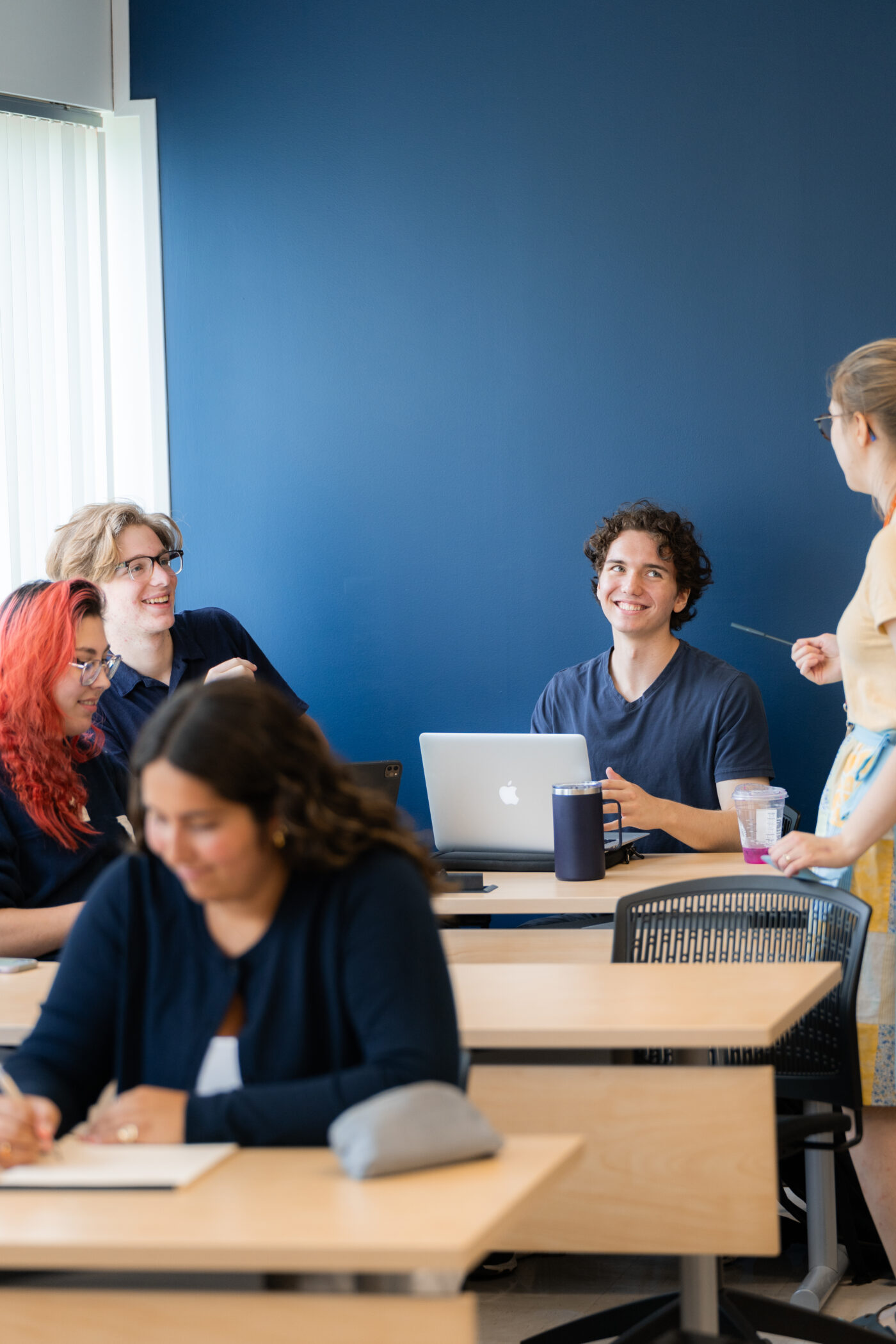

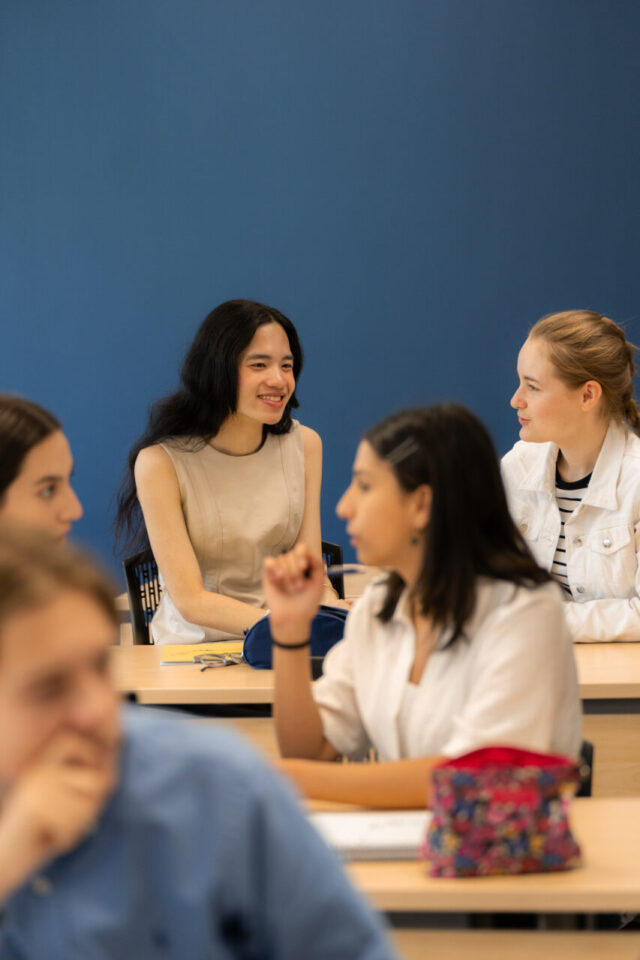
Social Science Comprehensive Assessment
What will be assessed?
The comprehensive assessment will be completed in the IA course that you take in your last semester. See the IA course description in any of the profiles of the Social Science Program.
You must demonstrate your individual ability to integrate the knowledge, skills and attitudes developed throughout your program by preparing, writing and presenting, both orally and in writing, a social science research essay that uses scholarly sources in French and in English, that considers at least three disciplinary perspectives, and that incorporates collection and analysis of primary data. In other words, you are expected to consolidate and demonstrate your achievement of the expectations of the graduate profile.
The subject for the senior research paper will be selected in consultation with the professor. The research paper is to be at least 2,500 words in length. A bibliography of 10 to 15 sources is required with three to five French sources.
How will it be assessed?
The comprehensive assessment will lead to a pass/fail grade based on the attainment of the elements of the graduate profile in the IA course. You must complete all required IA course work in order to pass the comprehensive assessment. Incomplete course work will result in no grade for the final paper, and thus a failing grade for both the IA course and the comprehensive assessment.
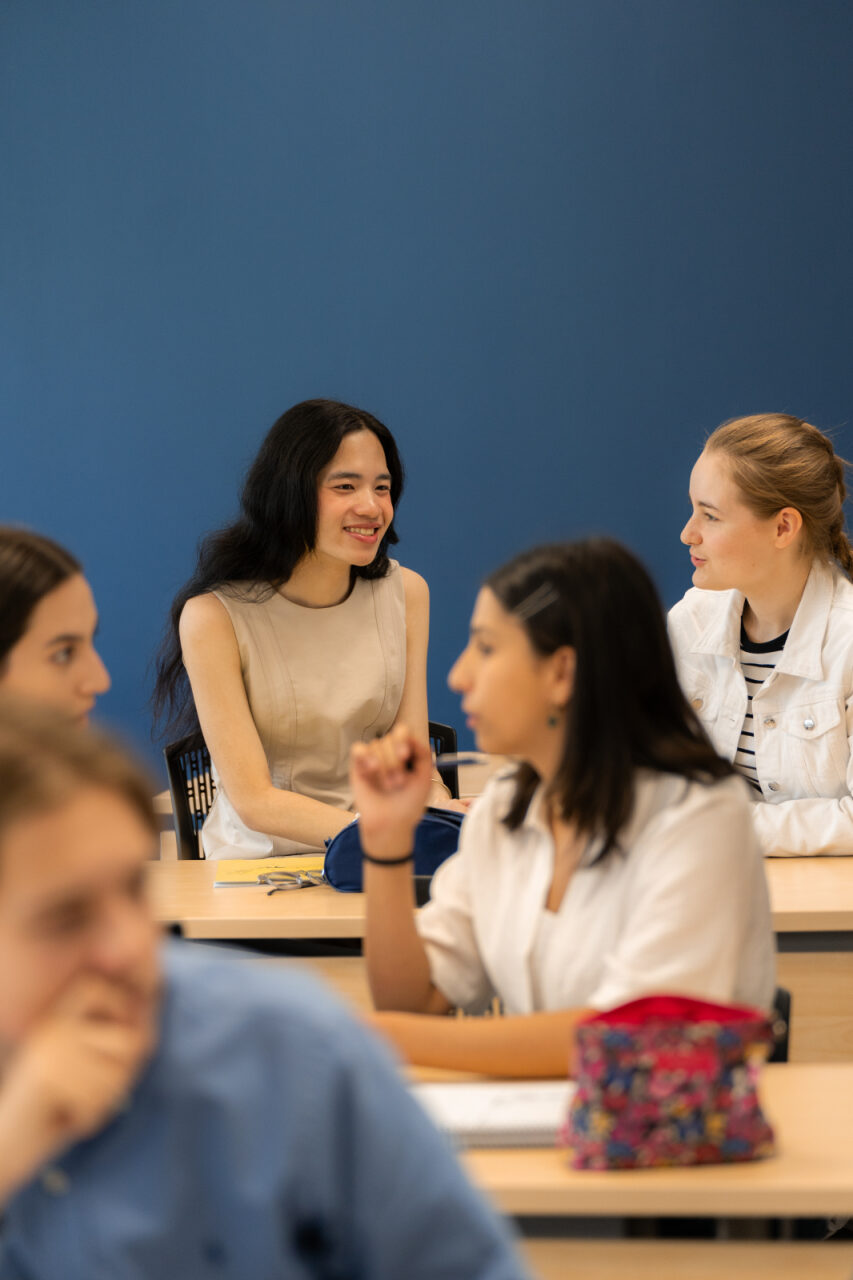

Where Might Social Science Lead You?
- Business Administration
- Commerce
- Communications and Journalism
- Counselling
- Criminology
- Economics
- Education
- Geography
- History
- Industrial Design
- Industrial Relations
- International Business
- International Relations
- Law
- Political Science
- Psychology
- Social Work
- Sociology
- Tourism
- Urban Studies
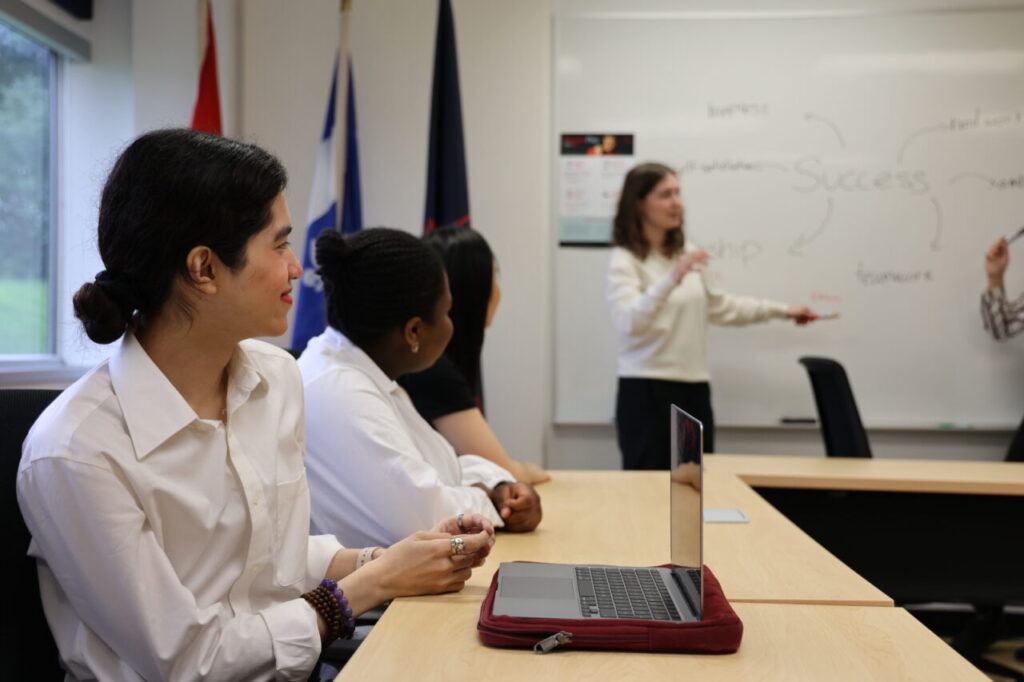
The St. Lawrence Social Science program was truly my passport to the world; with no boarding pass required! I had the chance to explore everything from foreign languages to geography, history, psychology, sociology, and even business. What made it even more special was the incredible teachers from across the globe, whether it was the UK, Germany, Mexico, or El Salvador, who opened my eyes to diverse perspectives and cultures. I also adored the freedom to curate my own schedule and path, all while having a supportive system that always had my back. And that final Integrative Activity? It sharpened my research skills and gave me a real head start on my university journey. This wasn’t just a program, it was a one-of-a-kind launchpad.
Bon Pham
Social Science student
After completing the Social Science program at St. Lawrence, I have a much deeper understand of society, from not just one perspective but many. As I progressed, each new discipline I encountered—taught by professors from diverse backgrounds and with varied teaching styles—felt like a new piece to the puzzle of how the world works. From exploring human behaviour in psychology to studying how civilizations rise and fall in history, the Social Science program felt fresh and interesting from start to finish.
Dominic Gaumont
Social Science student
As a psychology professor with nearly 30 years of experience, I can say with great pride that the Social Science Department at St. Lawrence College is truly something special. Our dedicated and talented faculty pour their hearts into teaching and supporting students, and it shows. Time and again, we hear from students how satisfied they are—not only with their choice of programme but with the warmth, care, and inspiration they find within our small department. We may be modest in size, but we have a big heart! Our instructors are deeply committed and available, creating an environment where students feel seen, supported, and encouraged to grow. It’s a joy to be part of such a vibrant and caring academic community!
Meagan Daley
Psychology teacher
The social science program has granted me a direction I never thought I’d have. Before I entered the program, I had no idea where I was going, but thanks to the wide variety of topics covered, I was able to narrow down my interests and realize what was right for me. Along the way I’ve made new friends and improved my skills as a researcher, speaker, and writer.
Jeremy Rhéaume
Social Science student
Social sciences at St. Lawrence is more than a simple program; it is a way to learn more about the world and about ourselves. For me, this program broadened my horizons and made me gain interests in topics I otherwise would never have considered. I am now going out into the world with better knowledge of myself and of what I am capable of.
Émilie Gosselin
Social Science student
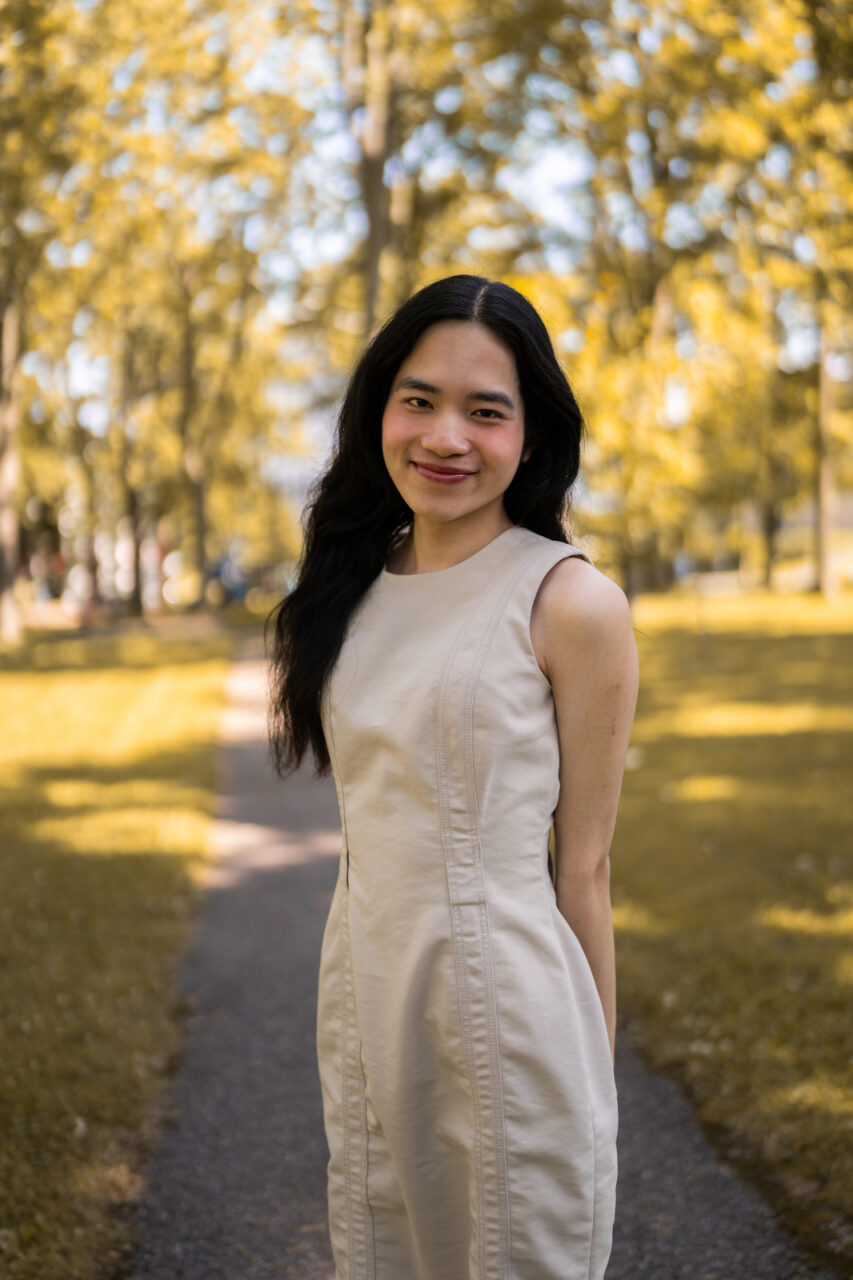
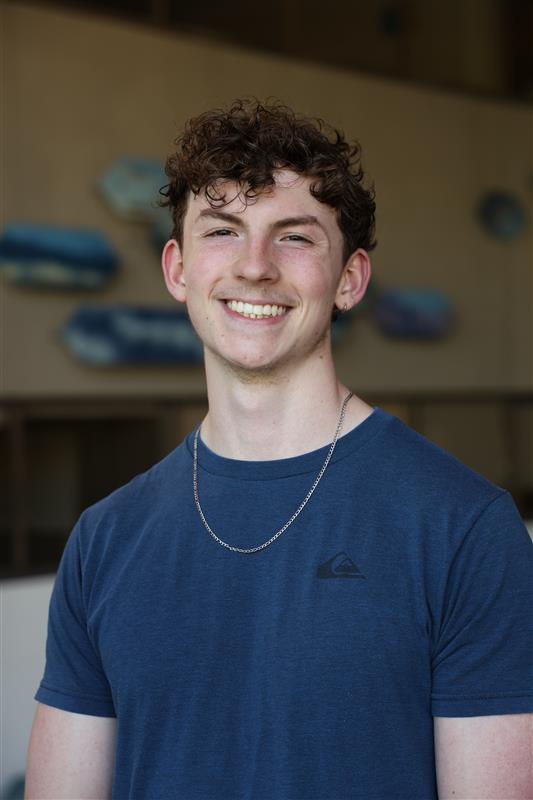
The Social Science Student Experience
St. Lawrence offers a wide range of opportunities to gain hands-on experience through clubs, events, and activities. The following clubs may be of particular interest to students in the Social Science program:
- Model United Nations Club
- Intercultural Club
- Health & Wellness Club
All extracurricular activities are open to all St. Lawrence students. Visit the Clubs & Sociocultural Activities page for more information and the complete list of clubs.
